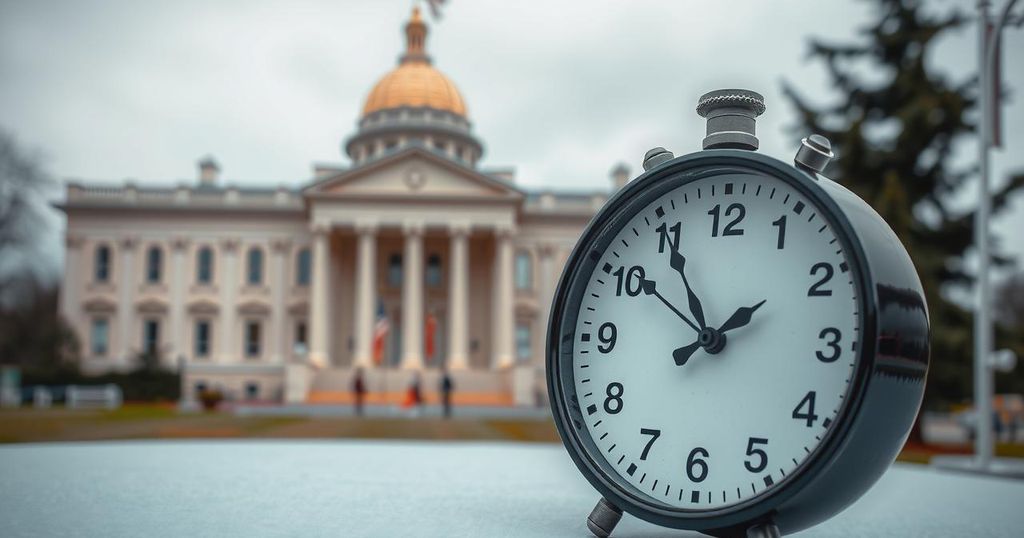Syria’s interim president, Ahmed al-Sharaa, indicated that national elections could be organized in four to five years, emphasizing the need to restore voting infrastructure. He was appointed after the ousting of Bashar al-Assad and has begun setting up a transitional government and legislative framework. His leadership has garnered support from regional countries, marking a potential shift in Syria’s political landscape.
Ahmed al-Sharaa, the newly appointed interim president of Syria, announced that organizing national elections may take up to five years. This timeline reflects the need to re-establish the voting infrastructure that has been heavily disrupted. In a recent televised interview, Sharaa expressed the intent for Syria to evolve into “a republic with a parliament and an executive government.” He further indicated the necessity for a law to regulate political parties in the country.
Following the ousting of Bashar al-Assad on December 8, military commanders selected Sharaa as interim president. His appointment has garnered support from key regional powers, including Egypt, Qatar, Turkey, and Saudi Arabia. Sharaa is also responsible for establishing an interim legislature, having dissolved the previous parliament alongside the ruling Baath party. The existing constitution, army, and security forces have also been repealed as part of this transition.
Sharaa previously commented on the timeline, estimating that the election process might require approximately four years. He noted the significant time required to restore the voting infrastructure, which is essential for credible elections. A transitional government is currently in place, overseeing the country’s affairs until March 1, ushering in a potentially new era for Syria.
The announcement comes in the wake of significant political upheaval in Syria, marked by the recent removal of long-time leader Bashar al-Assad after more than five decades of authoritarian rule. Ahmed al-Sharaa’s appointment as interim president is part of a larger effort to stabilize the country and set the stage for democratic governance. The focus on reorganizing electoral processes underscores the challenges facing the country as it seeks to rebuild its political framework and engage various political parties in a new governance structure. In this context, Syria appears to be charting a path towards establishing a more representative form of government. Despite the optimism, the transition faces numerous hurdles, including security concerns, economic challenges, and the need for international recognition and support.
In conclusion, Ahmed al-Sharaa’s comments highlight a cautious yet ambitious approach to rebuilding Syria’s political landscape. With an estimated time frame of four to five years for the organization of elections, Sharaa aims to restore democratic processes while promising to establish a regulatory framework for political parties. The support from regional powers suggests a somewhat united front aiming to stabilize Syria post-Assad, though significant challenges remain.
Original Source: www.france24.com




